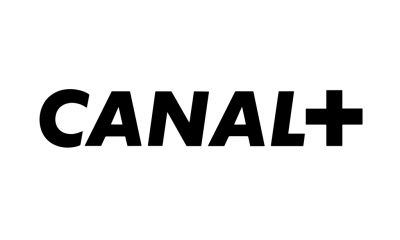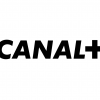Features
DStv price hike in Nigeria: 5 reasons why MultiChoice can’t be blamed
It is no longer news that MultiChoice, owners and operators of DStv and GOtv platforms in Nigeria will be increasing their monthly subscription fees for all its satellite/DTT bouquets with effect from Wednesday 1 April, 2015.
The subscription fee of DStv’s Premium, Compact Plus, Compact, Family, Access and Xtra View bouquets are all set to increase, as is the price for GOtv and GOtv Plus bouquets.
So before we rush to pass blame on the company, take a minute or two to read an industry expert’s informed analysis after taking a deeper and more objective look at the situation to draw conclusion at five good reasons why we shouldn’t blame MultiChoice on the price review.
- Inflation:
Nigerians continue to rue the devaluation of the naira, coupled with falling oil prices different reactions have also pointed in the direction of the country’s inability to contain the plunging oil prices and high inflation because Nigeria is an import-dependent country.
These economic forces are beginning to impact businesses (including MultiChoice). In both the short and long run the ripple effect will be felt by businesses. As banks’ lending rates increase, organizations’ profit margin will be eroded. Once that happens measures will have to be taken to cover cost, shore-up bottom-line and more importantly assure businesses profitability and continuity. The adversely effect of inflation on any business let alone a capital intensive one like Pay TV cannot be over emphasized. Alternatively, MultiChoice would be left with no other choice but to take drastic measures, that may include;
– To re-strategize its business model by cutting down on its huge investments in Sports, Nollywood and Corporate Social Responsibility projects.
– To downsize its workforce.
– To reduce the acquisition of contents, channels and compromise the quality of its programming.
Last year Eutelsat agreed a multi-transponder deal with MultiChoice, designed to secure the “continuing expansion” of MultiChoice’s DStv pay TV platform over the next 15 years. That deal costs millions and is being paid in U.S. dollars not taking into account the free falling Naira.
- Premium content is not cheap:
Perhaps that is the most often said phrase in the media business and that might be the reason why it tells a major part of the story of DStv’s dominance in content. The pay TV business around the world majorly is driven not just by content but, at the top end, by the quality of such content and that doesn’t come cheap.
Have you tried to regulate the rising airline fares or asked business class seat be made available to all passengers? Nigerians did not boycott power supply when PHCN increased tariff in spite of the epileptic supply of electricity across the county. How about the cost of toothpaste or the rising cost of bread? Why should you to pay less for premium content? Have you ever bought a product at premium price and redistributed it at no cost?
People talk about DStv being a monopoly. How can they be a monopoly when StarTimes (StarSat) just recently won the rights for the German Bundesliga from DStv (starting 2015/2016 season).
Is it the fault of DStv that it has continually executed a brilliant strategy of signing multi-year, pan-African content licensing deals that enables it offer premium content to its subscribers? Where is the monopoly? There are alternatives in Nigeria’s Pay TV industry, When HiTV had the rights to the EPL, these same Nigerians constantly complained about the quality of the studio guests/analysts, the broadcast quality etc. Without deviating from the subject matter, it’s obvious to all today that the business model employed by HiTV was its very Achilles heel? Where are they now? Suggesting that any Pay TV operator offer premium content at a less than cost value price is ludicrous and most be discouraged.
- Piracy:
When thinking about piracy, most people think of the harm it has caused the film and music industry and don’t consider the impact it has had on television. Piracy is a growing problem in Nigeria and the nature of the Internet has made it one increasingly too difficult to deal with.
This means a direct loss of advertising dollars to the television companies. This loss of money then impacts the ability and willingness of television studios to invest in new shows. If they cannot generate a return through advertising dollars, there is no profit to creating new and interesting shows.
In a joint effort to combat piracy in Nigeria, MultiChoice and the Nigerian Copyright Commission embarked on a phase out of non-secure decoders with a series of FREE decoder swoops, and introduced more secure decoders for the transmission of DStv signals that currently sell at a low rate of 11,500 Naira.
It is agreed allowing piracy to thrive impacts the economic situation in the country and deprives many people in the value chain of their appropriate income including DStv.
The decision to introduce a more secure decoder will go a long way to curb anti-piracy operations across Nigeria.
- High cost of doing business in Nigeria:
To the uninitiated, the promise of growth, high returns on investment are good enough reason to want to invest in an emerging market economy like Nigeria, but not so for those who have had a taste of the bitter pill, especially the high cost associated with running businesses in this country. Despite assurances by government of better operating business environment, there is still lack of infrastructure, power supply, inability to access funds, and multiple taxation.
MultiChoice’s platforms, DStv and GOtv are dependent on raising money from subscription priced to match their ever growing operational costs.
Despite all these the company has continued to reaffirm its commitment to Nigeria which is clearly demonstrated through the massive investments in the country.
- The increase is not new to only Nigeria:
How can people say that DStv has substandard decoders? Have they seen the competition’s decoders? Perhaps they need to do so.
DStv in Nigeria is one of the lower priced packages across all MultiChoice operations in Africa. Its operations across Africa have increased prices including South Africa.
While the company needs to offer its subscribers affordable digital entertainment, they also have to make sure their business can survive well into the future.
Many DStv subscribers have asked why they can’t just pick and choose TV channels and pay for those (Pay Per View), well, that also will not come cheap to subscribers.
I understand that subscribers feel they will save more money if they could choose only the channels they want to watch. Unfortunately this is not the case. It’s actually more cost effective to structure channels into packages.
In reality, choosing your own package with your own channel selection would mean you’d end up paying more than you are now (and for just a few channels). That’s why MultiChoice offers a range of packages with different fees and channel combinations – to cater for the viewing choice and pocket of a wide range of their customers.
To conclude, just as with HiTV, it should not be the fault of DStv that the other pay TV operators do not live up to expectation. Why is it okay for the cost of every commodity in Nigeria to rise, save for DStv? Is it a social service? Nigerians should not always put the blame of years of poor governance and bad business decisions on DStv.
We should note that it’s a free market and the regulators give licenses to all who qualify. Consat, Montage, DaarSat, StarTimes, ACTV all have licenses to operate, so they should operate! Rather than seeking to bring down DStv, who has paid its dues and kept Nigerians entertained over the past 21 years.
People need to seek more knowledge on the pay TV business before disseminating false information or jumping on the band wagon of sheer ignorance.
PLEASE NOTE: The thoughts expressed in the write up are those of the author and not MultiChoice.
By Asuquo Eton


























me
April 8, 2015 at 11:33 am
how much did they pay you for this piece of bullshit
AE
April 8, 2015 at 1:35 pm
Point of correction, We were never paid for this article. Thank You.